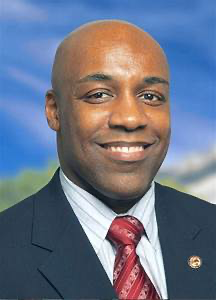Attorney General Kwame Raoul today partnered with the U.S. Secret Service National Threat Assessment Center (NTAC) for a virtual threat assessment training designed for places of worship. Using research and case studies from past mass attacks in public spaces, the training provided recommendations to help faith leaders, house of worship staff, and others identify, assess and intervene with individuals who exhibit concerning or threatening behaviors.
Hundreds of participants, including clergy, worship staff, security personnel, mental health professionals and law enforcement, participated in the threat assessment training hosted by the Attorney General’s office and the NTAC. The NTAC presented its latest research on mass attacks in public places, including key findings and commonalities in an attempt to help people identify warning signs that could prevent future attacks.
“From major retailers, to churches to a manufacturing facility in Aurora, Illinois, the past year showed us that we must all remain vigilant to keep our public spaces safe from targeted violence,” Raoul said. “I would like to thank the Secret Service for partnering with my office to host a threat assessment training. Collaboration between state and federal authorities is critical – sharing resources allows us better prepare our community leaders to identify the signs and behaviors connected to mass attacks in the hopes we can prevent tragedies from occurring.”
“The Secret Service remains a committed and steadfast partner in security and resilience efforts to communities nationwide,” said U.S. Secret Service Chicago Deputy Special Agent in Charge James Gorman. “Through the National Threat Assessment Center, the Secret Service is able to offer unique research to inform different security protocols that can be tailored to the individual needs of an institution. I am proud to have been able to assist in facilitating today’s incredibly important event for Chicagoans as we all come collectively together to remain a step ahead of preventable tragedy.”
The NTAC issued its third annual “Mass Attacks in Public Spaces” report for 2019 in August 2020. The report examines 34 incidents of targeted violence carried out by 37 attackers in public or semi-public spaces between Jan. 1, 2019 and Dec. 31, 2019. The attacks involved three or more individuals – not including the attacker – being injured. The NTAC studied the tactics, backgrounds and pre-attack behaviors of perpetrators in order to evaluate and recommend best threat assessment and prevention practices.
The NTAC’s report found that attacks occurring in 2019 took place in a variety of locations, including businesses and workplaces, schools, places of worship, military bases, open spaces, housing complexes, and on forms of transportation. The report notes that most of the attackers used firearms, nearly half of which were possessed illegally during the attack. The report also found many attackers had experienced unemployment, substance abuse, mental health issues or recent stressful events. Attackers also had a history of prior criminal charges or arrests and domestic violence. Also according to the report, most of the attackers had exhibited behavior that raised concerns other individuals, with many of those people fearing for their own safety or that of others.
The purpose of Attorney General Raoul’s training was to provide community leaders and residents with information to help them identify concerning or threatening behaviors, with the ultimate goal of preventing attacks from taking place. The training took into account the considerations of faith leaders who must balance their congregants’ spiritual and safety needs, as well as the safety of their surrounding communities.
The Secret Service recommends a multidisciplinary approach to violence prevention, called threat assessment. The goal is to proactively identify individuals who display threatening behavior and intervene prior to violence occurring, which requires a community-
based approach. According to the NTAC, faith-based leaders, mental health professionals, workplace managers, law enforcement officers and school personnel play essential roles in threat assessment.
The Secret Service National Threat Assessment Center, through the Presidential Threat Protection Act of 2000, delivers research, training, consultation and information on threat assessment and preventing targeted attacks directed at government officials and facilities, workplaces, places of worship, schools, and other public spaces. For the full report visit: https://www.secretservice.gov/sites/default/files/reports/202009/MAPS2019.pdf






